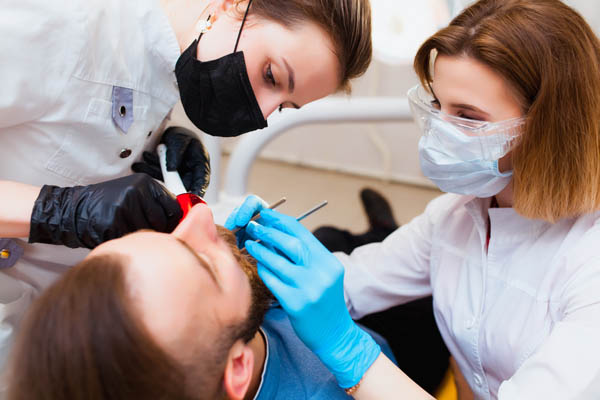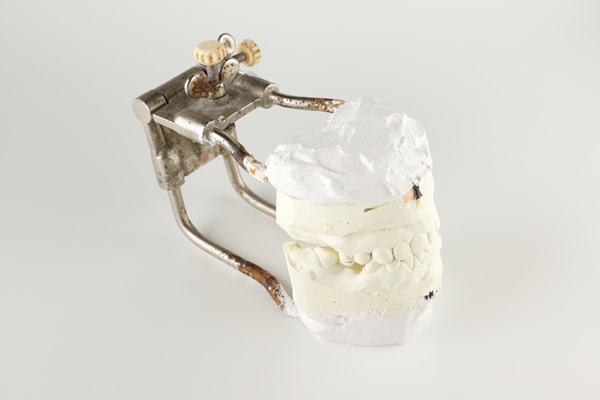Ask a Periodontist: How Do You Treat Periodontal Disease?

A periodontist offers different forms of treatment for periodontal disease, also called gum disease. The condition, which affects millions of adults in the United States, is the leading cause of tooth loss. However, prompt treatment can stop the disease in its tracks and even reverse the damages. This article covers treatment options offered by a periodontist for gum disease.
Treatment options for periodontal disease
The periodontist can treat this gum condition with any of the following options.
Scaling and root planing
The first line of treatment for patients with periodontal disease is the conservative technique called scaling and root planing. The treatment involves scraping and cleaning plaque and tartar off the teeth and root surfaces using specialized dental tools. Afterward, they will smooth any roughness around the root surfaces to prevent easy bacteria accumulation. The treatment can take more than one dental appointment.
The dentist will administer a local anesthetic to reduce discomfort during the procedure. Afterward, the gums will begin to heal and reattach to the teeth's surfaces. After a few weeks, patients will visit the dental office so the dental professional can assess healing progress and determine if additional intervention is required.
Pocket reduction procedure
In a case of severe periodontitis, treatment typically involves cleaning the teeth and correcting loose teeth. It may be hard to clean the deep pockets of the gums. The periodontist may then recommend a periodontal pocket reduction or flap surgery. The dental professional will fold back the gum tissue to remove infectious bacteria and smoothen parts of the damaged bone. This will enable the gum tissue to reattach to healthy bone.
Gum grafts
If the tooth roots are exposed because of gum recession (caused by gum disease), the periodontist may recommend gum grafts to cover them. The dentist will transfer tissue from the palate or another area to cover the tooth roots. This procedure reduces sensitivity and shields the roots from infection. It also prevents further gum deterioration and bone loss.
Tissue regeneration
If the bone supporting the teeth has been damaged by gum disease, the dental professional will recommend tissue regeneration to stimulate the regrowth of bone and gum tissues. It is completed with flap surgery and entails placing a tiny mesh-like fabric between the gum tissue and the bone. This guides the growth of bone and gum tissues after inserting natural or synthetic bone in areas of bone loss. Tissue-stimulating proteins are also used to ensure successful regrowth.
Professional dental cleaning
The dentist will usually perform a professional dental cleaning to remove plaque and tartar from the teeth surfaces. This is often effective for treating early gum disease, called gingivitis. Tartar is a hardened plaque that accumulates on the teeth and causes gum inflammation. The cleaning is usually done during a biannual dental checkup, but the dentist might recommend more regular cleaning appointments for patients who show signs of gum disease.
Final note
Seeking prompt treatment from the periodontist is important to prevent complications caused by periodontal disease. It also ensures that you can be treated with minimally invasive techniques.
Request an appointment here: https://www.periocafe.com or call Brighton Periodontal & Implant Dental Group at (818) 703-7733 for an appointment in our Woodland Hills office.
Check out what others are saying about our dental services on Yelp: Periodontist in Woodland Hills, CA.
Recent Posts
A missing tooth can have consequences on oral health and self-confidence. The good news is that periodontists have several tooth replacement options to restore a patient’s smile, no matter where the lost tooth was located. Whether through surgical or nonsurgical tooth replacements, periodontists can effectively fill gaps in your smile, improve bite function and force,…
Periodontists specialize in periodontal health, which includes the gums and underlying jawbone that supports teeth and dental implants. Many periodontists offer dental implants, and they can provide a great experience for patients who are interested in replacing one or more teeth with dental implants.Dental implants from a periodontist may be right for you if you…
Appearance may be one of the first things people think about when it comes to tooth replacement. However, improved appearance is just one of the many benefits of replacing missing teeth. Tooth replacement can be key to improving not only how you feel about your smile but also boosting your oral health.Whether one chooses dentures,…
Curious about bone grafting? Read on to learn more about this procedure. Periodontal health is a crucial aspect of one's oral health, but gum disease and tooth loss can compromise it and cause jawbone loss. Bone grafts are increasingly used in periodontal treatment as they can rebuild and strengthen the jawbone. The procedure can improve…


